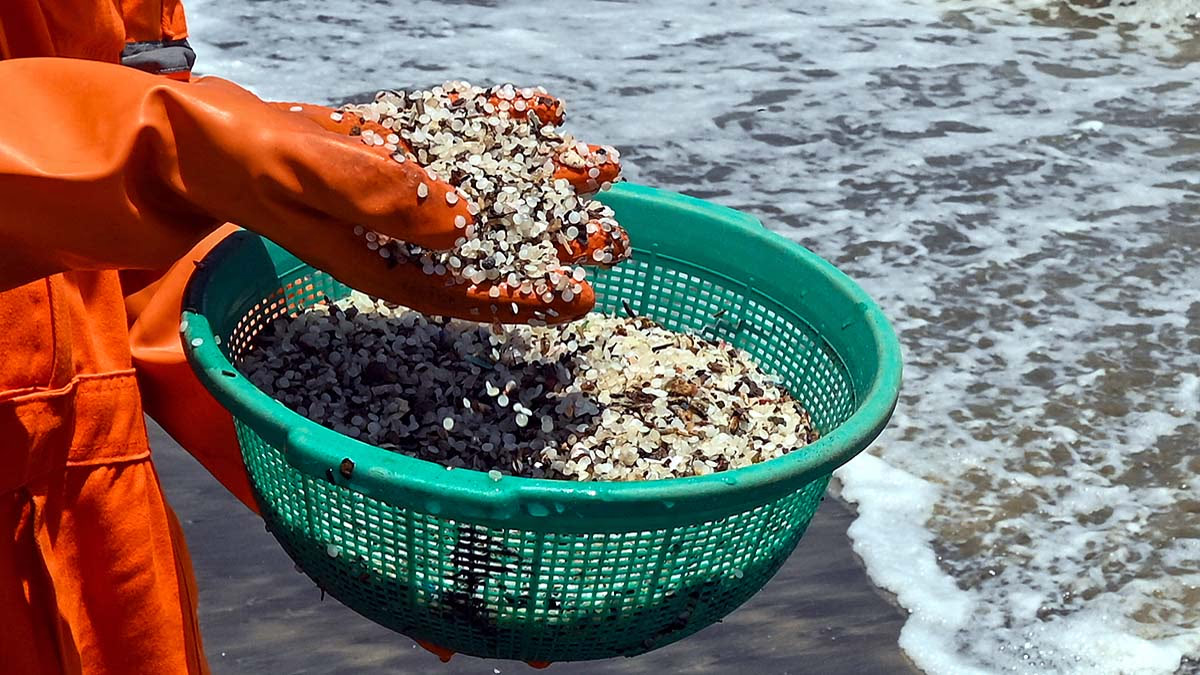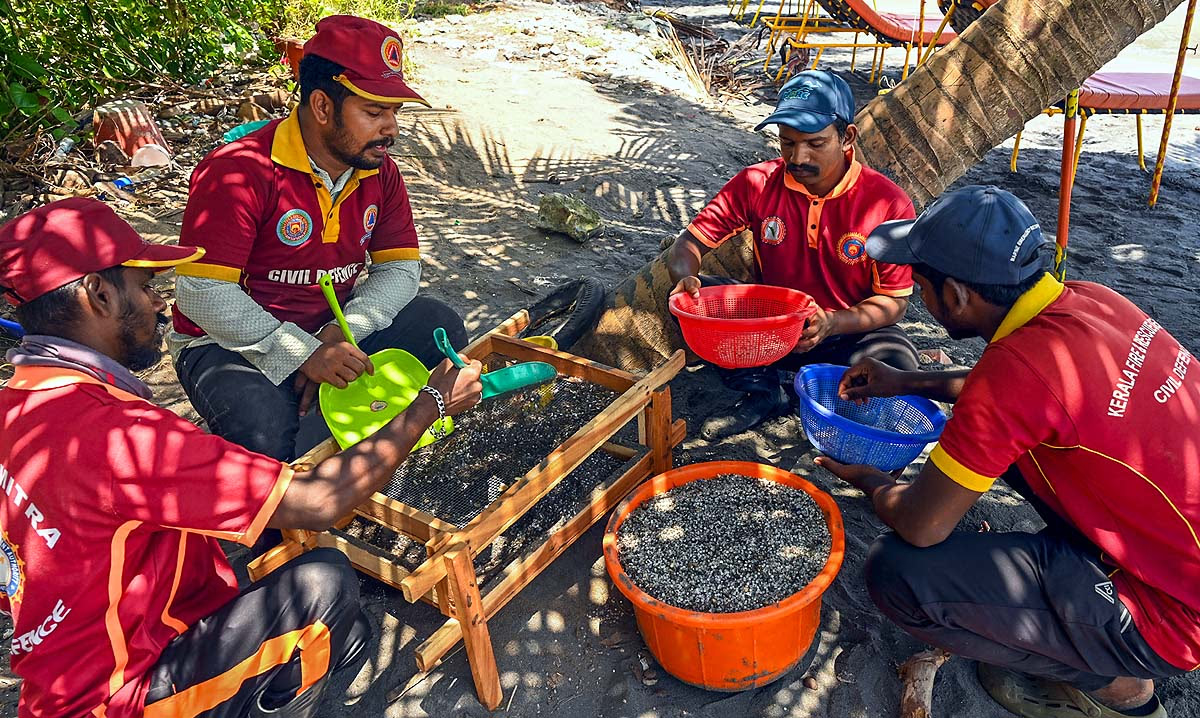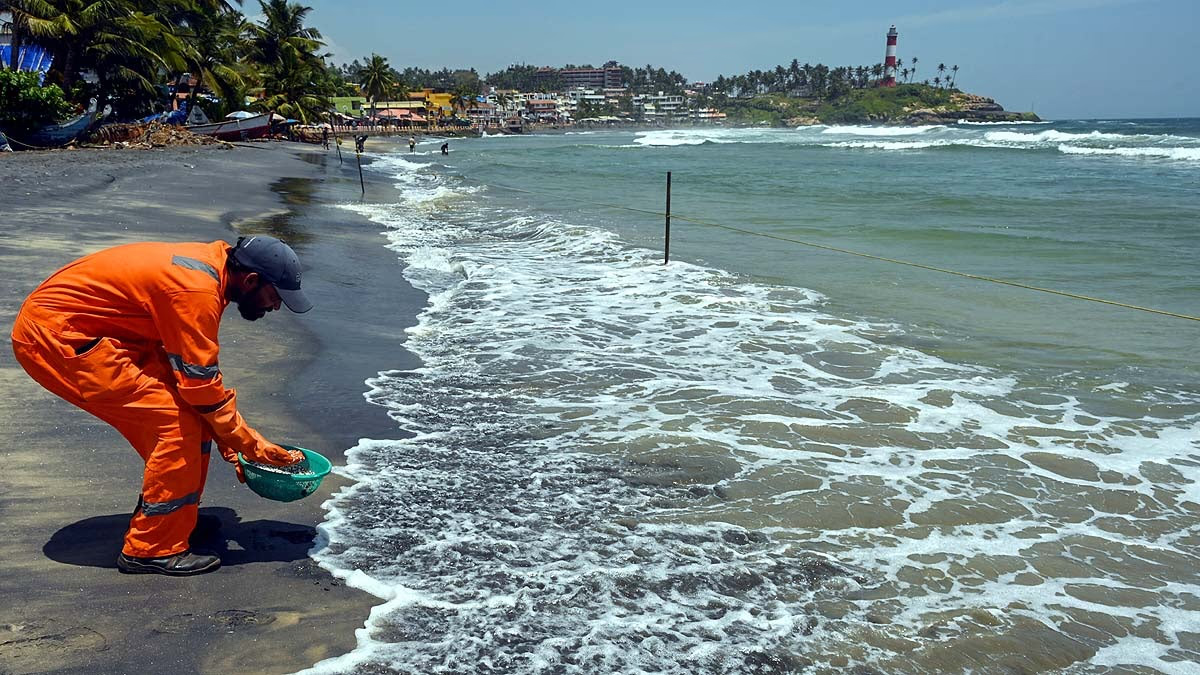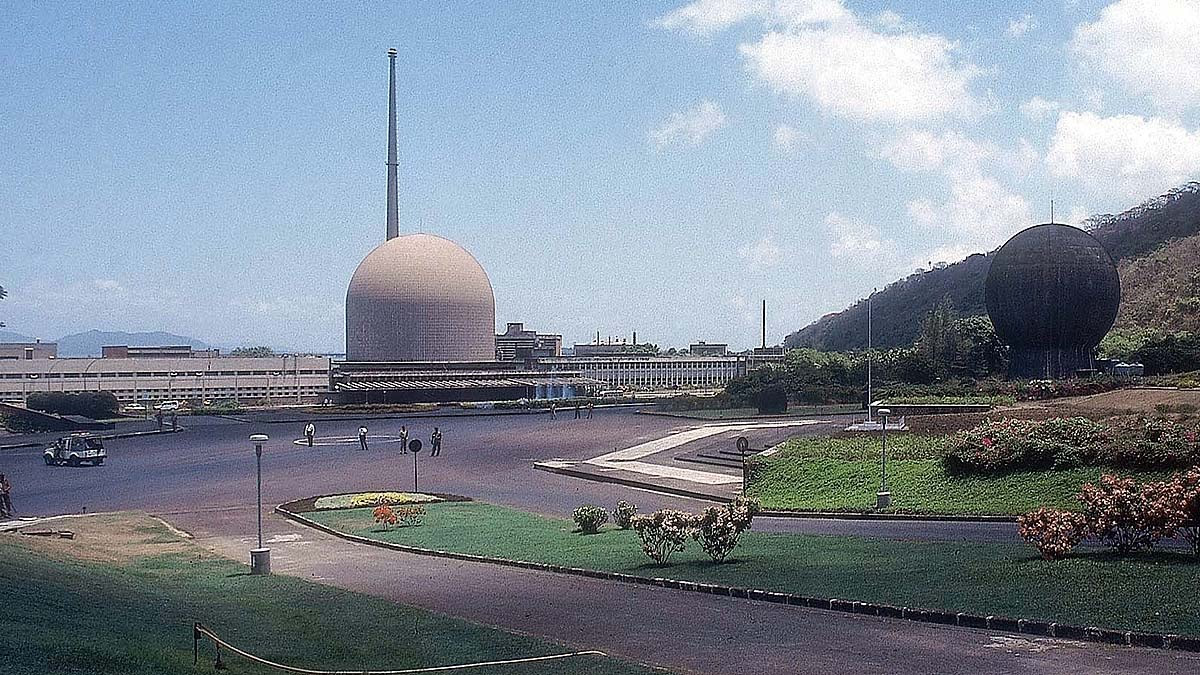The wreckage of container ship MSC Elsa 3, which sank off the coast of Kerala in the Arabian Sea on May 25, 2025, has released toxins into the ocean. A report from the Centre for Marine Living Resources & Ecology (CMLRE) under the Ministry of Earth Sciences has turned the worst fears into reality. The oil spill from the vessel has severely affected water quality, plankton, marine creatures, fish eggs, larvae, and bigger marine animals. Weeks later, oil slicks are still visible.
On May 25, 2025, the Liberian-flagged container ship MSC Elsa 3 was en route from Vizhinjam to Kochi when one of its holds began filling with water, aided by the strong monsoon winds, causing the ship to sink. It sank approximately 38 nautical miles (about 70 kilometers) from Kochi.
Read also:
Loaded with 640 containers filled with calcium carbide, sulfur, rubber solution, and oil, the ship immediately began leaking oil which spread rapidly. Fishermen from Kochi to Kanyakumari were alarmed. Poothura fisherman Joseph Manuel reported their nets were filled with dead sardines, and the sea reeked of diesel.

Source: aajtak
The Kerala government has declared it a state disaster. The Indian Coast Guard deployed INS Sujata, ICGS Arnvesh, and ICGS Saksham, while Dornier aircraft monitored the oil slicks. However, the initial response was slow.
From June 2-12, samples were collected from 23 locations by the FORV Sagar Sampada ship. The report found ...
Chemical Pollution: Increase in polyaromatic hydrocarbons (PAHs) such as naphthalene, fluorene, anthracene, phenanthrene, fluoranthene, and pyrene in water and sediments, indicating oil tank leakage. Naphthalene is the 'fingerprint' of man-made oil pollution.
Metal Pollution: High levels of nickel, lead, copper, and vanadium linked to petroleum.
Impact on Marine Life: Fish eggs and larvae are rotting. Benthos (worms, mollusks) populations affected, with resilient species lingering while sensitive ones have disappeared. Brown Nody marine bird stuck to wreckage, a classic sign of oil pollution.
The report indicates that the wreck has become a source of local hydrocarbon and heavy metal pollution. Oil slicks are still visible weeks later, despite fast currents.
Read also:
Kerala accounts for 15% of India's total fish catch. The monsoon season sees the highest catch, but the shipwreck has drenched nets with oil, reducing the catch. Fishermen, already plagued with debts, fuel inflation, and declining fish stocks, face increased challenges. Greenpeace India ominously called it a 'ticking ecological time bomb.' Radhika Menon noted that every wave brings toxic remnants from the ship, threatening the food chain.

Source: aajtak
The Arabian Sea is already stressed—with rising temperatures, declining oxygen levels, and industrial fishing. Marine biologist Mini Joseph emphasizes that this is not a one-off spill but a chronic leak. Failing to seal the wreck could lead to generational pain.
International law allows the government to seek compensation from shipowners, but with Panama-flagged vessels, operations in Europe, and insurance elsewhere, assigning responsibility is challenging. PUCL lawyer M. Muhammad Aboubakr mentioned that fishermen can't battle in foreign courts. The government must make international claims.
The CMLRE report is the first official confirmation that the MSC Elsa 3 wreck is spreading poison. The stakes have risen for Kerala's fishermen and marine life. The report demands sealing of the wreck's fuel tanks and long-term monitoring. Rapid government action is necessary to prevent further damage.




